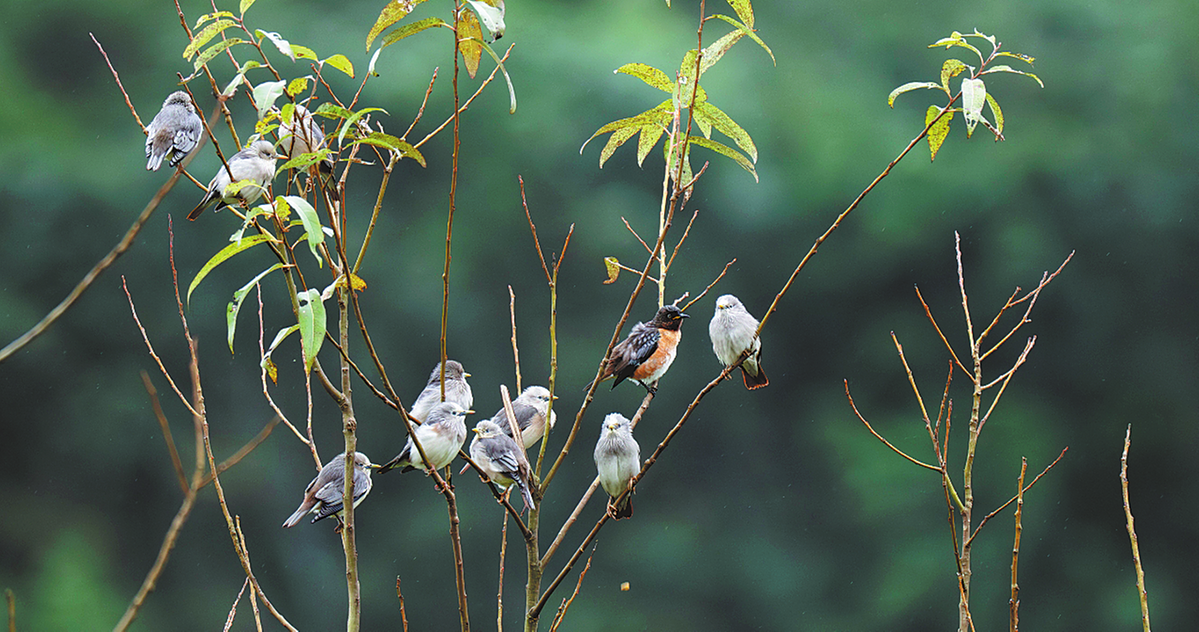Calls and conservation
Teams of birders venture into Yunnan's Lancang county for 60-hour bird race to document species


Rich biodiversity
By the second day of the festival, the total number of bird species recorded had already reached 270. "The total record of the first Lancang bird festival was 231, and it was held mainly within the Nuozhadu reserve, which offers better protected habitats," Zhong said. "This result shows Lancang's extremely rich biodiversity."
Lancang, situated in southern Yunnan and bordering Myanmar, boasts a diverse elevation range from 600 meters to 2,200 meters. This varied landscape includes the Lancang River valley, wetlands such as ponds and terraced farmlands, economic forests such as tea forests on the Jingmai Mountain, and both original and secondary seasonal rainforests around the Nuozhadu reserve.
The timing of the bird festival aligns with the migration of many northern breeding birds moving south for the winter. These migratory birds mingle with local resident birds and summer visitors that haven't yet departed, offering both significant challenges and delightful surprises for the participating teams.
"You show up at different habitats and will find different birds," Lei said. "Because of the weather, the different timings of your visits to the same habitat might produce dramatically different sightings."
As a result, Zhong noted that 50 of the 273 bird species documented during the festival were recorded by only one team. More than 40 percent of the species were sighted by no more than four teams, and only 60 species were observed by most of the participating teams and could be considered locally common.
A low number of unique species suggests that bird-watching is relatively easy and species duplication is high, Zhong said.
On the other hand, a high number of unique species may indicate difficult bird-watching conditions such as birding in karst landscapes or in bad weather. It could also mean that the race area is large with significant elevation differences and with fewer teams spread out. "Our bird race falls into the latter category," she said.
























